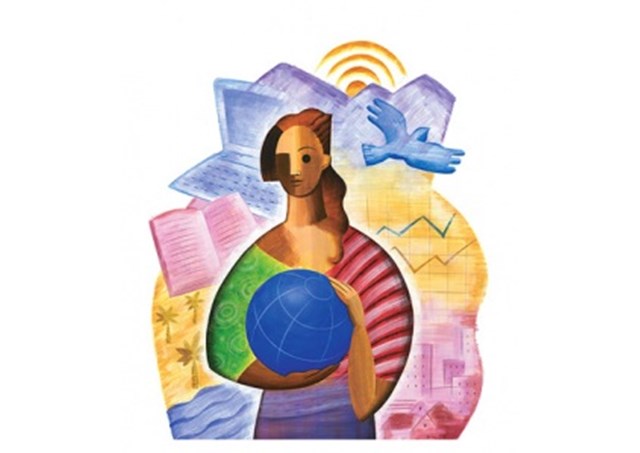
Voices of Faith: what women want in the Church

(Vatican Radio) What do women want? No, I’m not talking about the movie starring Mel Gibson and Helen Hunt. I’m talking about "what women want in the Church": a panel discussion on the role of women in the Church that was part of “Voices of Faith,” a story-telling event in the Vatican in celebration of International Women’s Day 8 March.
Held at the Pontifical Academy of Social Sciences, this week’s gathering was the third consecutive “Voices of Faith” conference, an initiative of the Fidel Götz Foundation in partnership with Jesuit Refugee Service (JRS).
Women do most of the work, want to do more for the Church
Accounting for more than half of the world’s 1.2 billion Catholics, women take care of 85% of the Church work that clerics don’t do. Yet VOF panelists said women want to contribute even more to their Church - and their skills and professional experience represent a not-to-be missed opportunity. And with new studies showing more and more women and young people are leaving the Church, they also want a Church that is more “inclusive,” a Church that acknowledges their achievements and contributions, a Church that represents them.
I spoke with the multigenerational and multinational panel of women ahead of Tuesday’s event. They include Geralyn Sheehan, country director for the U.S. Peace Corps in Columbia; Nicole Perone, a Masters student of Divinity at Yale University in the U.S.; Petra Dankova from the Czech Republic – a postulant with the Sisters of the Holy Redeemer; Gaya Lobo Gajiwala an English teacher from a multi-faith family in India; and Dr. Carolyn Woo, President of Catholic Relief Services. I began by asking Dr. Woo what are some of the accomplishments that women today can offer the Church.
Need to make women’s engagement systematic, not exceptional
In response, Woo draws on her experience in the United States, saying women “are presidents of Catholic universities, of Catholic hospital systems, of Catholic social agencies like CRS. They are superintendents; they are Chancellors. So it demonstrates that at least in the U.S., the Church has engaged women and has done some power-sharing. Where we need to go,” she adds, “is to turn this from an exceptional type of experience to a more habitual process so that it’s not the extraordinary, the rare [instance] where we do that… but that we need to make the appointments of women much more of an expectation, much more systematic and regular.”
Recently recognized as “one of the world’s 500 most influential people,” Woo says “I think clearly the Church needs to think about and explicitly identify decision-making bodies -whether it’s within a council or an advisory board or so on… identify the opportunities where we could use more women. Really just do an inventory of where those opportunities are.” Once the list of opportunities is out there, then you “can identity the experiences and skills and knowledge needed so that it could be systematic.” She invites bishops conferences around the world to identify and pre-vet strong women and lay male candidates to fill such posts.
Geralyn Sheehan brings with her more than thirty years of experience working with the marginalized and vulnerable. She and the other women joined me in studio….
Listen to the discussion moderated by Tracey McClure:
| All the contents on this site are copyrighted ©. |


